You are here
Charles Burnett
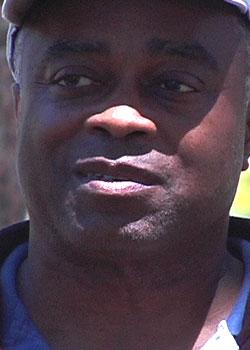
Charles Burnett is a writer-director whose work has received extensive honors. Born in Vicksburg, Mississippi, his family soon moved to the Watts neighborhood of Los Angeles. Burnett studied creative writing at UCLA before entering the University’s graduate film program. His thesis project, Killer of Sheep (1977), won accolades at film festivals and a critical devotion; in 1990, it was among the first titles named to the Library of Congress’ National Film Registry.
European financing allowed Burnett to shoot his second feature, My Brother’s Wedding (1983), but a rushed debut prevented the filmmaker from completing his final cut until 2007.
In 1988, Burnett was awarded the prestigious John D. and Catherine T. MacArthur (“genius grant”) Fellowship and shortly thereafter Burnett became the first African American recipient of the National Society of Film Critics’ best screenplay award, for To Sleep with Anger (1990).
Burnett made the highly acclaimed “Nightjohn” in 1996 for the Disney Channel; his subsequent television works include “Oprah Winfrey Presents: The Wedding” (1998), “Selma, Lord, Selma” (1999), an episode of the seven-part series “Martin Scorsese Presents The Blues” (2003) and “Nat Turner: A Troublesome Property” (2003), which was shown on the PBS series “Independent Lens.”
Burnett has been awarded grants from the Guggenheim Foundation, the Rockefeller Foundation, the National Endowment for the Arts and the J. P. Getty Foundation. In 2011, the Museum of Modern Art showcased his work with a month-long retrospective.
Filmography
| Film | Role(s) | Year | |
|---|---|---|---|
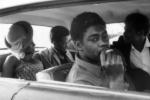 |
Several Friends In Charles Burnett’s first student film, Several Friends, a group of eccentric and endearing young people converse in a variety of everyday settings. |
Director Producer Writer Editor |
1969 |
 |
69 Pickup Filmmaker Thomas Penick explores race, gender and violence in this provocative, disturbing drama set on a hot, summer day in 1969. When a woman accepts a ride from two men at the corner of Western and Adams, the encounter quickly turns ugly, venturing into painful, surreal territory. |
Cinematographer | 1969 |
 |
The Horse Charles Burnett employs a sparse lyricism in this haunting coming-of-age tale about an African American boy tending to a horse that is to be put down. |
Director Producer Writer Editor |
1973 |
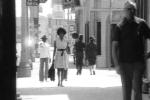 |
Bush Mama Bush Mama is Haile Gerima's powerfully moving look at the realities of inner city poverty and systemic disenfranchisement as experienced by Dorothy, a pregnant welfare recipient in Watts, played by the magnetic Barbara O. Jones. Motivated by the incarceration of her partner T.C. (Weathers) and the protection of her daughter and unborn child, Dorothy undergoes an ideological transformation from apathy to action. |
Cinematographer | 1975 |
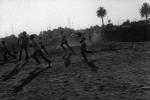 |
Killer of Sheep Charles Burnett’s captivating vision of 1970s Watts reveals a vibrant community living in the dusty lots, cramped houses and concrete jungles of South Los Angeles. The episodic narrative revolves around the emotional pressures faced by a factory worker; moments of humor and despair, mixed with evocative African American music, form a clear-eyed, compassionate portrait. |
Director Producer Writer Cinematographer Editor |
1977 |
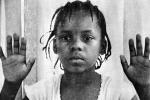 |
Your Children Come Back to You Alile Sharon Larkin's film looks at a mother, a child, a better life on the horizon, and a bond that cannot be broken. |
Cinematographer Editor |
1979 |
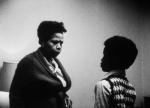 |
The Pocketbook In the course of a botched purse-snatching, a boy comes to question the path of his life. Billy Woodberry’s second film, and first completed in 16mm, adapts Langston Hughes’ short story, “Thank You, Ma’am,” and features music by Leadbelly, Thelonious Monk and Miles Davis. |
Cinematographer | 1980 |
 |
Illusions Set in Hollywood during World War II, Julie Dash's Illusions explores the nature of Hollywood fantasy and the illusion of racial identity. |
Editor | 1982 |
 |
A Different Image An African American woman contemplates self-identity, heritage and perception on the streets of the sprawling Los Angeles metropolis in a film by Alile Sharon Larkin. |
Cinematographer | 1982 |
 |
My Brother's Wedding Laid off from his factory job, Pierce (Silas) marks time working at his family’s dry cleaning store, swapping loaded jabs with his brother’s upper middle-class fiancé and hanging out with his best friend, recently released from prison. Director Charles Burnett fleshes out Pierce’s sense of suspension with richly observed detail, the revelation of character bound to the revelation of an African American community, itself at a crossroads. |
Director Producer Writer Cinematographer |
1983 |
Pages
To report problems, broken links, or comment on the website, please contact support
Copyright © 2025 UCLA Film & Television Archive. All Rights Reserved






 Mobile Navigation
Mobile Navigation

